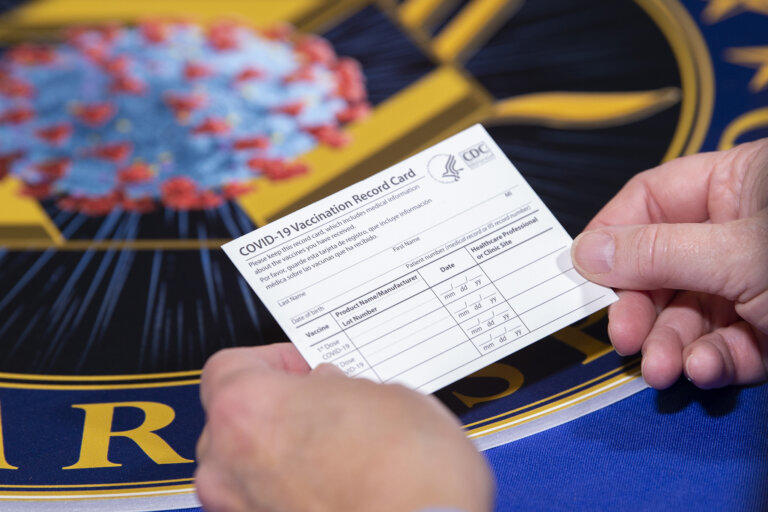
Caption
Paper cards at the moment are the only proof readily available to Americans of their COVID-19 vaccination. That could soon change, with multiple companies and nonprofit groups working to create smartphone-based “vaccine passports."
Credit: EJ Hersom/U.S. Department of Defense

